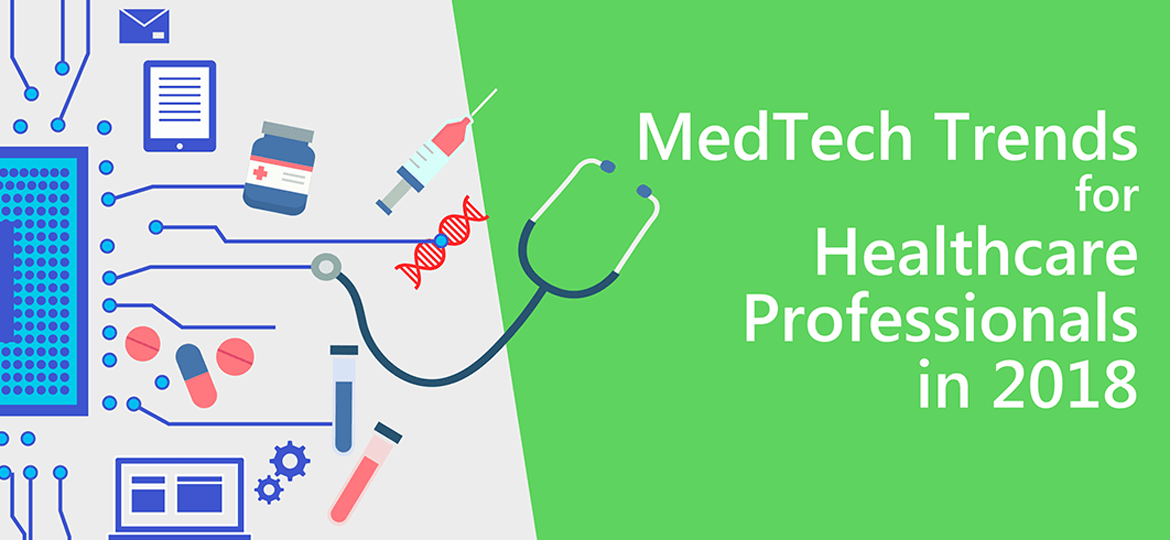
MedTech Trends for Healthcare Professionals in 2018
The healthcare industry has seen a rapid growth in technology over the last few decades. Innovations have defied barriers like reduced funding, stringent regulations and security lapses to propel the global market value of MedTech companies to $389 billion.
MedTech is the “application of organized knowledge and skills in the form of devices, medicines, vaccines, procedures, and systems developed to solve a health problem and improve quality of lives,” as defined by The World Health Organization (WHO).
Some of the recent innovations that have stirred the industry include:
- Artificial Intelligence using Big Data and IoT. It can process huge data loads and suggest the optimum treatment strategy. A step towards Smart Hospitals of the future.
- Virtual Reality (VR) for training doctors on intricate procedures and surgeries.
- 3D printing, called bio printing, to print functional liver and kidney tissues using living cells.
- Wearable technology that measures and tracks vital signs and parameters.
While novel technologies like 3D printing and Virtual Reality have a long way to go, the Wearable technology has already made some serious inroads. That said, 2018 is expected to be the nexus point for these 3 technologies, which are seen as potential game changers by experts.
AI inspired technologies
Artificial Intelligence has already proved to be the next big thing in the healthcare industry. One look at the NASA style Command center in Canada is enough to realize the prospects of Smart hospitals is not far away. In fact, the Dutch have already started implementing IoT to track treatments for Cardiac patients.
“IoT will provide more contextual information from, and more interaction options with, patients. Based on the information, a hospital can decide if a patient needs to visit a healthcare professional or not,” says Drs. Barend Heeren, the Program Manager at Radboud University Medical Center.
In 2018, the application of AI in clinical diagnosis and decision making is something to look out for.
Blockchain powered Electronic Health Record (EHR)
It is essentially a network of computers used as nodes for storing data, without a central controlling authority.
Blockchain has shown great promise in the development of patient-driven healthcare systems and efficient documentation of patient data. Implementing Blockchain in EHR can help in better handling of real-time data for use in clinical trials, claim settlement etc.
Increased focus on cyber security
Cyber security was in the spotlight for most parts of 2017 for the unwarranted attacks (WannaCry, Petya, WikiLeaks, Cloudbleed etc) that brought the security vulnerabilities of all sectors into focus. An attack of such scale on the healthcare industry could lead to unimaginable consequences.
In 2018, naturally, more focus will be on strengthening security and bringing stringent regulations into effect.
2018 promises this and much more innovations in other areas as well, inspiring experts to predict an exciting future to look forward to.
